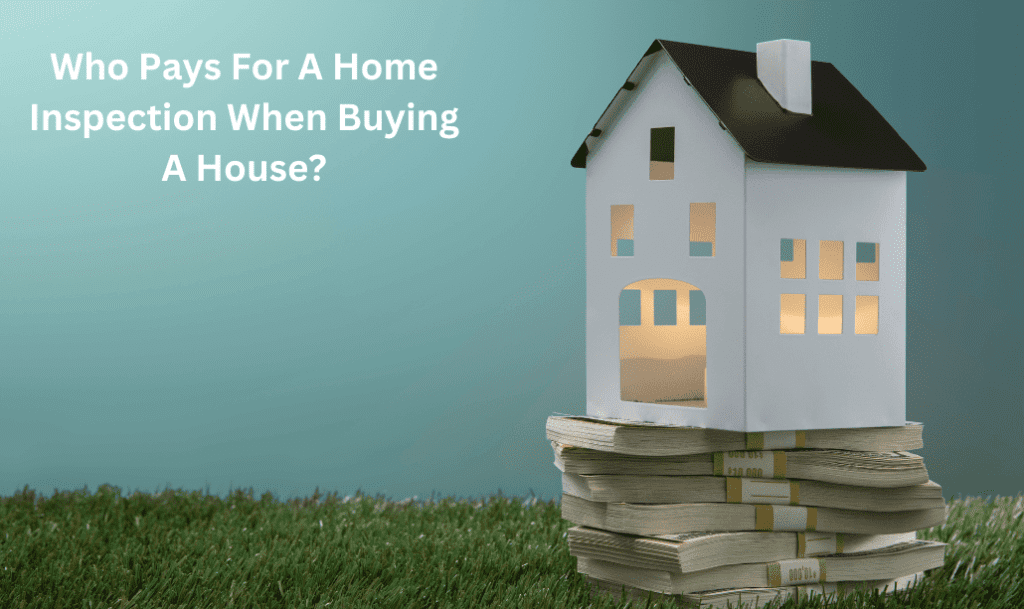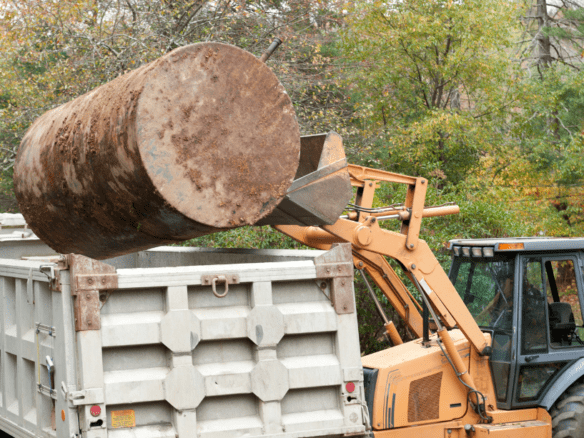Buying a house is an exhilarating and frequently stressful process.. As potential buyers, we are bombarded with numerous decisions and considerations, from location and size to budget and financing options. However, one crucial aspect that is often overlooked in the homebuying process is the home inspection. A home inspection is a comprehensive evaluation of a property’s condition. Aiming to uncover any potential issues or defects that may affect the value or safety of the home.
While buyers need a thorough home inspection before finalizing their purchase, the question of who pays for this service often arises. In this article, we will delve into the intricacies of home inspections and break down the buyer and seller’s responsibilities in terms of payment. We will also address some common misconceptions and provide valuable insights for buyers to consider when negotiating this aspect of the home buying process.
Buyers Usually Pay For Inspection
During the process of buying a house, one important aspect that buyers need to take into consideration is the cost of a home inspection. In most cases, the buyers are responsible for paying for the inspection. This is because the inspection is performed for the buyers’ benefit and peace of mind. It allows them to thoroughly assess the property’s condition and identify any potential issues or repairs that may need to be addressed. Buyers can make informed decisions and negotiate any necessary repairs with the seller by investing in a professional home inspection. Buyers must budget for this expense and factor it into their overall costs when purchasing a house.

Can Negotiate For The Seller To Pay
When it comes to the cost of a home inspection, buyers are typically expected to cover this expense. However, in some cases, there may be room for negotiation. Buyers can negotiate with the seller to have them pay for the home inspection. This can be particularly beneficial for buyers facing financial constraints or who want to allocate their funds toward other aspects of the home buying process.
It is worth noting that the success of this negotiation will depend on various factors. Such as the market conditions, the seller’s willingness, and the overall dynamics of the transaction. Buyers should discuss their intentions with their real estate agent and explore the possibility of negotiating for the seller to pay for the home inspection as part of their overall buying strategy.
Lenders May Require An Inspection Fee
When purchasing a house, it’s essential to be aware that the lender may require an inspection fee. This fee is separate from the buyer’s responsibility to cover the home inspection cost. The lender may request an inspection to ensure that the property meets their lending standards and is in good condition. This inspection aims to protect the lender’s investment and mitigate any potential risks associated with the property. The cost of the lender-required inspection fee can vary depending on the size and complexity of the property. It’s essential for buyers to carefully review their loan agreement and discuss any potential fees with their lender to understand their financial obligations in the home buying process fully.
Home Inspection Is Not Mandatory
It’s worth noting that while some lenders may require an inspection fee, home inspection itself is not mandatory when buying a house. However, it is highly recommended for buyers to opt for a thorough home inspection before finalizing the purchase. A professional home inspection provides valuable insights into the property’s condition, identifying any potential issues or repairs needed. It can help buyers make informed decisions, negotiate repairs or adjustments in the purchase agreement, and avoid future unexpected expenses. Ultimately, the home inspection cost is a small price to pay for the peace of mind and protection it provides buyers.
Protects Buyers From Costly Surprises
When buying a house, one of the crucial benefits of a home inspection is that it protects buyers from costly surprises. By engaging a professional home inspector, buyers can understand the property’s condition comprehensively. Including any hidden issues that may be later apparent. This can range from structural problems to plumbing, electrical, or pests. Buyers can avoid unforeseen costs by negotiating revisions in the purchase agreement or factoring in the necessary repairs by identifying these concerns ahead of time. Ultimately, a thorough home inspection acts as a safeguard. Ensuring that buyers are fully aware of the potential risks and allowing them to make informed decisions about their investment.
Conclusion
When it comes to who pays for a home inspection when buying a house, it ultimately depends on the negotiations between the buyer and the seller. In most cases, the buyer is responsible for covering the inspection fee. However, it is common for the seller to agree to cover the cost as part of the negotiations. Both parties must discuss and agree on this before moving forward with the homebuying process. A thorough home inspection can provide peace of mind for the buyer and ensure that the home is in good condition, making it a worthwhile investment.
FAQ
Is it customary for the buyer or seller to pay for the home inspection when purchasing a house?
Typically, the buyer pays for the home inspection when purchasing a house. However, this can vary depending on the terms negotiated in the real estate contract. Buyers usually arrange and pay for the inspection to ensure the property is in good condition before finalizing the purchase.
Are there any circumstances in which the seller would cover the home inspection cost?
Sometimes, a seller may offer to cover the cost of a home inspection as a goodwill gesture to attract potential buyers or expedite the sale process. This is more common in a competitive housing market or if the seller wants to demonstrate transparency and build trust with buyers. However, it is less common for sellers to cover inspection costs as it is typically the buyer’s responsibility to ensure they make an informed decision about the property’s condition. Ultimately, the decision to cover the home inspection cost rests with the seller and should be negotiated as part of the sales agreement.
Can the home inspection cost be negotiated as part of the purchase agreement?
Yes, the home inspection cost can be negotiated as part of the purchase agreement between the buyer and seller. This negotiation may involve the buyer requesting the seller to cover the inspection cost or lowering the purchase price to account for the inspection cost. Ultimately, the terms of the agreement are subject to the mutual agreement of both parties involved in the real estate transaction.
Are there any potential consequences for the buyer if they choose not to pay for a home inspection?
Yes, there are potential consequences for the buyer if they choose not to pay for a home inspection. By forgoing a home inspection, the buyer may avoid identifying potential issues or problems with the property that could be costly to repair. This could lead to unexpected expenses, safety hazards, or decreased property value. Ultimately, investing in a home inspection is a crucial step in the home buying process to ensure that the buyer makes an informed decision and protects their investment.
How much does a typical home inspection cost, and is it worth the investment for the buyer?
The cost of a typical home inspection can range from $300 to $500, depending on the size and location of the property. While this may seem like an additional expense for buyers. It is worth the investment as it provides valuable information about the property’s condition and can uncover potential issues that may not be visible during a regular viewing. This can help buyers make informed decisions, negotiate repairs or pricing, and avoid costly surprises in the future. A home inspection is a small price for peace of mind and investment protection.







Join The Discussion